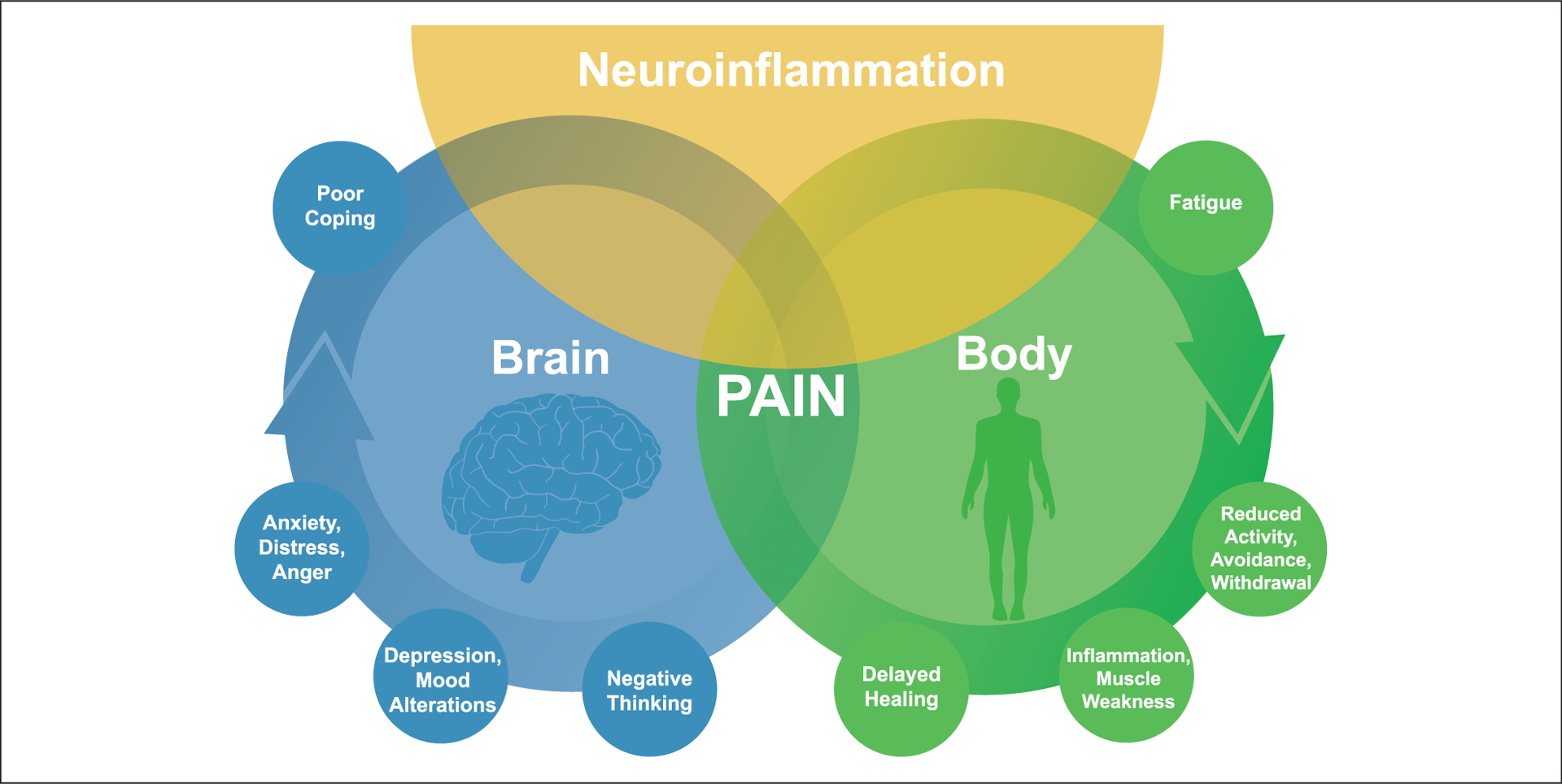Figure 1.

Pain is a complex experience involving sensory-discriminative, affective-motivational, and cognitive-evaluative dimensions. The experience of pain and responses to pain result from interactions of biological, psychological, and social factors. The interactions among these pathways are complex and reciprocal. Emerging evidence suggests that neuroinflammation in the peripheral and central nervous systems plays a critical role in the onset and progression of pain. Inflammation signals the brain to induce sickness responses that include increased pain and negative affect. Therefore, immune activation and inflammation play a critical role in the cross-talk between the central nervous system and peripheral immune system during states of stress, psychiatric illness, and abnormal pain conditions. Understanding neuroimmune mechanisms that underlie pain and comorbid symptoms may yield novel therapeutic strategies that integrate a collaborative and interdisciplinary approach in the treatment of chronic pain.
